Self-care is key for new parents
Feeling emotional or overwhelmed after a new baby’s arrival? You’re not alone. A mental health therapist urges parents to take some time and ‘honor their process.’
Get tips to help adjust to your new normal.
Fiona Carungay describes herself as a “recovering type A person.”
“I used to thrive off taking care of myself and excelling in my career and having everything in its place,” she said.
All of that changed after her son was born.
“Things were very chaotic,” said the Kaiser Permanente member and employee. “I wasn’t getting enough sleep. I couldn't keep our place clean. I couldn't take care of myself, and I didn't know how to cope.”
Things may feel difficult right now, but they won’t be like this forever. There is light at the end of the tunnel. Emma Reyes-Ramirez, LCSW
Adjusting to a new normal
Many new parents experience worries, tearfulness, and exhaustion after a baby is born. These feelings typically last anywhere from a few days to a few weeks.
“The period after your baby is born is a period of a lot of adjustment,” said Emma Reyes-Ramirez, a licensed clinical social worker at Kaiser Permanente who counsels new parents. “You're healing physically from having had the baby. You’re dealing with a lot of hormonal changes. And now you have this baby that you need to take care of. It can be really overwhelming.”
Reyes-Ramirez stresses the importance of self-care at this time of transition. She urges her patients to take time for themselves and “honor their process” as they adjust to being new parents.
3 self-care tips for new parents
- Ask for help. Don’t be reluctant to ask for help when you need it. And if someone offers to cook you a meal, do the laundry, or take the baby on a walk while you rest, take them up on it.
- Set boundaries. Not feeling up for visitors? Don’t feel like posing for a picture? Just say no. It’s OK to let friends and family know how you’re feeling.
- Make time for you. Take time to do things you enjoy. Have a cup of tea, catch up with a friend, watch a show, or read a book.
When to seek help
If feelings of sadness and worry last for more than a couple of weeks, reach out to your doctor. You might be experiencing postpartum depression.
“With postpartum depression, symptoms are intense, long-lasting, and they can affect your ability to function,” said Michelle Gebhardt, MD, an ob-gyn with Kaiser Permanente.
The good news is postpartum depression is very treatable. Kaiser Permanente offers a range of care options. Treatment might include one-on-one therapy, group therapy, or safe, effective medication.
“Things may feel difficult right now, but they won’t be like this forever,” said Reyes-Ramirez. “There is light at the end of the tunnel.”
Learn more about mental health during and after pregnancy.

May 14, 2024
A key ally in navigating mental health care for kids
Behavioral health consultants can provide a better understanding of often …

May 3, 2024
Lonely and depressed — but not alone
After a lifetime of feeling isolated, Moth Wygal finds connection thanks …

April 29, 2024
Soccer star: ‘Let’s talk about mental health’
Naomi Girma, a sports ambassador for Kaiser Permanente, is passionate about …

April 10, 2024
For a new mom, talking about her worries helped her heal
One in 5 people experience depression, anxiety, or other mental health …

April 9, 2024
Denver Fire Department annual blood work screenings triple
It’s easy to put off recommended health screenings, and sometimes even …

April 1, 2024
Lynch syndrome: Managing the risk of hereditary colon cancer
Lynch syndrome is a gene mutation that increases colon cancer risk. Learn …

March 18, 2024
Program helps member prioritize her health
Medical Financial Assistance program supports access to health care.
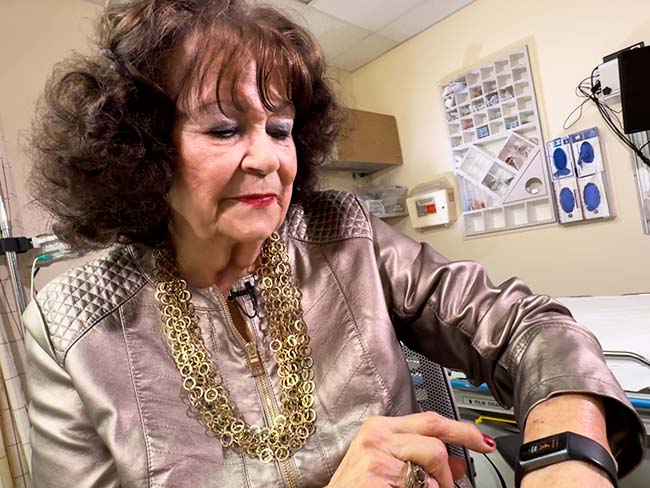
March 12, 2024
In-home recovery restores harmony to life
Colorado musician back with the band thanks to new virtual cardiac rehab …

March 6, 2024
Are you dreading the spring season?
A new Kaiser Permanente facility in Bellflower, California, makes customized …

February 22, 2024
The journey of a lifetime
Care teams at Kaiser Permanente Fontana Medical Center helped Phillip Crawford …

February 21, 2024
From planning his funeral to celebrating his wedding
Gabriel Abarca had no hope for his future. Then the team at Kaiser Permanente …

February 21, 2024
Recovering at home after a double mastectomy
Innovative surgical recovery program helps breast cancer patients safely …

February 13, 2024
A legacy of life-changing community support and partnership
The Kaiser Permanente Watts Counseling and Learning Center started as a …

February 12, 2024
Proposition 1 would bolster mental health care in California
Kaiser Permanente supports the ballot measure to expand and improve mental …

February 8, 2024
Road to heart health: Living well
You have only one heart. ‘Prescribe’ yourself a few changes to help protect …

February 2, 2024
Expanding medical, social, and educational services in Watts
Kaiser Permanente opens medical offices and a new home for the Watts Counselin …

January 29, 2024
Empowering minds to help others thrive
Supporting behavioral and mental health in communities where needs are …

January 26, 2024
Retiree back in the swing of things after heart procedure
Tookie Gentilcore returns to enjoying life thanks to a quick, safe method …

January 24, 2024
A full-circle journey for one cancer survivor
Grateful for compassionate and successful Hodgkin lymphoma treatment at …

January 23, 2024
How to bolster your child’s self-esteem
Everyday Health

January 22, 2024
Solutions for strengthening the mental health care workforce
Better public policies can help address the challenges. We encourage policymak …

January 3, 2024
Addressing the shortage of mental health workers
There aren’t enough mental health professionals in the U.S. to meet the …

December 7, 2023
Safe, secure housing is a must for health
We offer housing-related legal help to prevent evictions and remove barriers …

November 29, 2023
Tapping into an array of mental health options
Pavan Somusetty, MD, explains how people who need support and guidance …

November 21, 2023
Surviving lung cancer as a nonsmoker
As a lifelong nonsmoker, Mariann Stephens was shocked to learn she had …
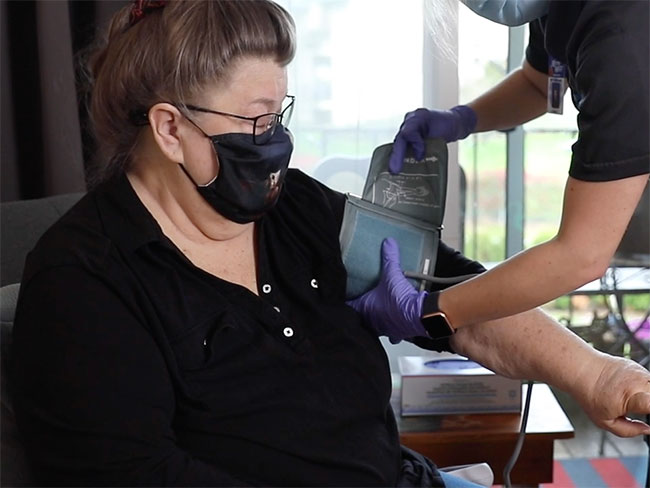
November 15, 2023
Care at home: Giving patients what they want
Our Advanced Care at Home program provides high-quality, safe care in familiar …

November 1, 2023
Tips for healthy holiday travel
Six steps help you prep for winter trips.

October 24, 2023
Childhood anxiety: What parents need to know
A child and adolescent psychiatrist shares tips on supporting your child …

October 23, 2023
A renewed sense of purpose after surviving breast cancer
Joy Short, a Kaiser Permanente member and employee, turned her breast cancer …

October 18, 2023
Hidden hazards of Halloween
Parents should take precautions to help their children avoid illness and …

October 11, 2023
Bridging the mental health gap
Kaiser Permanente’s partnership with Fontana Unified School District brings …

September 27, 2023
Harvest your power
Use biofeedback to help manage stress.

September 27, 2023
From suicide survivor to mental health advocate
Former Major League Baseball player Drew Robinson shares his story of hope …

September 20, 2023
Ultramarathoner back on track after cardiac surgery
Fit and focused, an Oregon father and runner rebounds after an aortic valve …

September 20, 2023
Healing after a heart attack
For years, serious heart attacks meant hours of weekly appointments. Now, …

September 13, 2023
Mental health champion: A mission inspired by personal loss
San Diego Wave Fútbol Club star defender Naomi Girma, Kaiser Permanente …

September 6, 2023
Recovery from addiction is possible
Our clinicians help patients get the care they need to move forward with …

August 28, 2023
Grants improve the total health of our communities
Kaiser Permanente increases access to mental health services in Southern …

August 22, 2023
Mental health
Expanding access to high-quality mental health services

August 14, 2023
Marla’s story: Surviving acute promyelocytic leukemia
After a diagnosis for a rare type of blood cancer, Marla Marriott got high-qua …

August 10, 2023
Successfully navigating the school year
These tips from Don Mordecai, MD, Kaiser Permanente’s national mental health …

August 4, 2023
Eating well and adopting healthy habits helps prevent cancer
Learn how lifestyle medicine is part of cancer care at Kaiser Permanente.

July 27, 2023
Courageously facing hereditary breast cancer
Fay Gordon's breast cancer was caught in the early stages thanks to genetic …
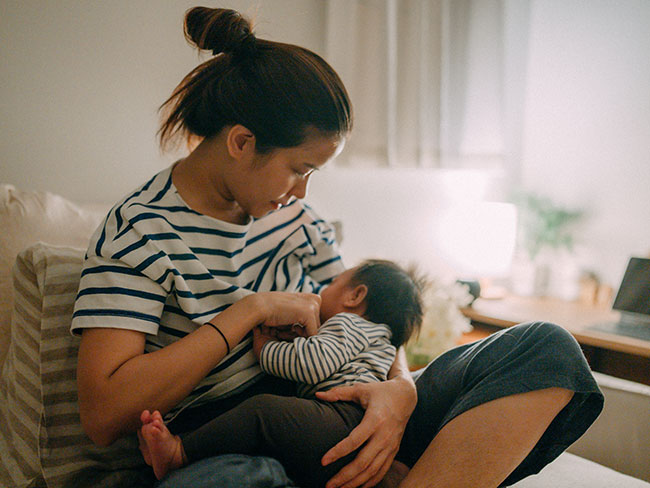
July 25, 2023
5 breastfeeding myths debunked
Tarayn Fairlie, MD, a pediatrician and lactation consultant, helps separate …
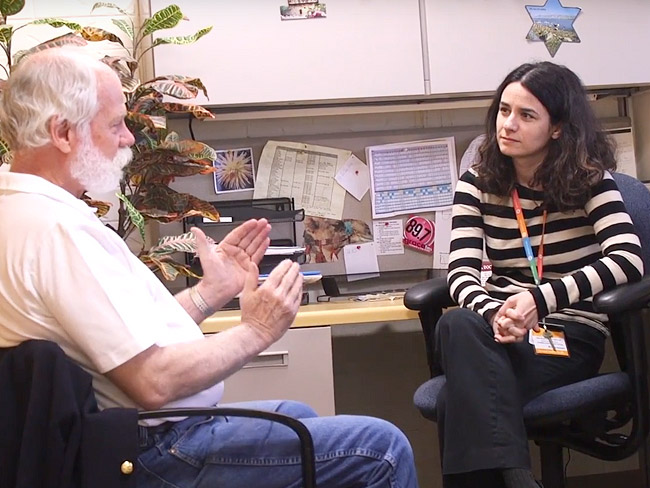
July 11, 2023
Cancer care for the body, mind, and spirit
Many people with cancer experience depression and anxiety. Mental health …

July 7, 2023
‘I am not the face of a heart attack’
Linda Tapia lives a healthy, active life, so she was stunned to be diagnosed …

July 3, 2023
A compassionate approach is saving lives and rebuilding hope
Kaiser Permanente Los Angeles Medical Center’s Bridge Program has become …

June 30, 2023
Men's mental well-being is a priority
Unique challenges and societal pressures can impact men’s emotional well-being …

June 28, 2023
Making waves to empower young girls
Kaiser Permanente and the San Diego Wave Fútbol Club host a second Wave …

June 23, 2023
Get the mental health support you need
Kaiser Permanente is here to help with care and valuable tools to support …

June 22, 2023
Employee joined Connect study after bloodwork results
Help change the future of cancer prevention by joining Connect today.

June 21, 2023
And that’s why they call postpartum the blues
Take time to adjust to a new baby and lifestyle changes — and reach out …

June 14, 2023
Living with stage 4 breast cancer
Thanks to personalized care from a team of skilled doctors, Christina McAmis …

June 9, 2023
Mental health, addiction, and the power of a peer
Shared experience helps young people in Oregon build confidence for their …

June 7, 2023
Teen social media use may lead to depression
Creating a healthy relationship with social media can help safeguard the …

June 5, 2023
Understanding and living with bipolar disorder
A Kaiser Permanente member shares his personal journey of navigating bipolar …

June 1, 2023
Policy recommendations from a mental health therapist in training
Changing my career and becoming a therapist revealed ways our country can …

May 30, 2023
The healing power of shared cancer experience
Peer mentoring program matches new cancer patients with others who’ve gone …
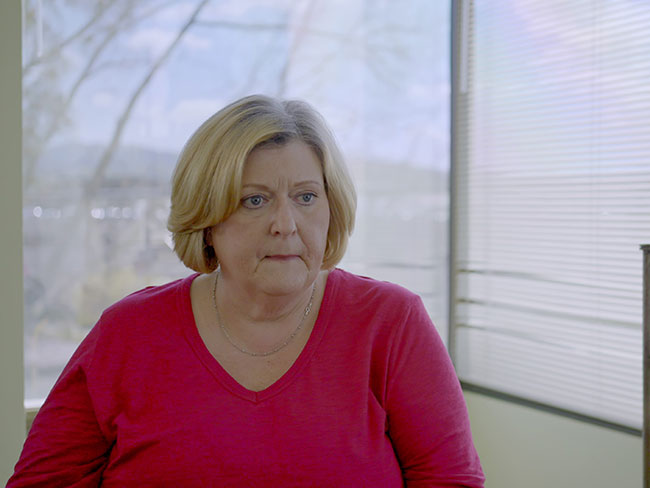
May 22, 2023
Sidelined by injury, a former nurse seeks depression care
Susan Sandhu struggled to find meaning in her life after an injury forced …
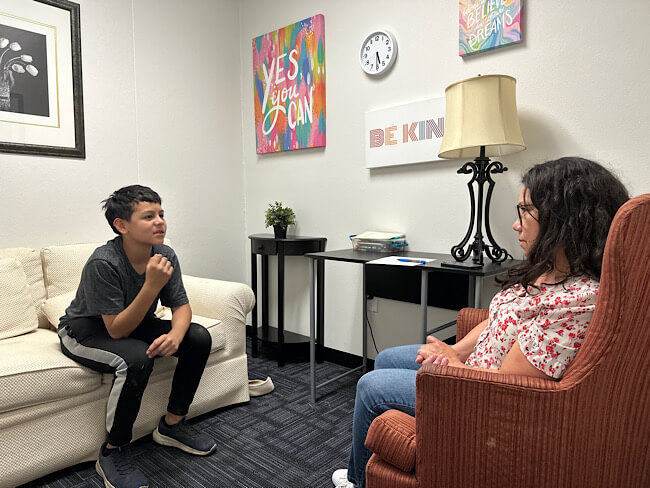
May 18, 2023
Addressing mental health trauma in a local community
Trauma-informed outreach efforts in Orange County are being recognized …

May 16, 2023
Managing trauma does not need to be traumatic
Expanded access to high-quality, affordable mental health care supports …

May 12, 2023
Understanding autism: Beyond the myths and misunderstandings
Early diagnosis and individualized care can lead to better outcomes for …

May 9, 2023
School shootings provoke anxiety in many children
Child psychiatrist defines anxiety, its symptoms, how to address it, and …

March 29, 2023
Volunteering helps create healthier communities
Kaiser Permanente’s partnership with Special Olympics Southern California …

March 24, 2023
Finding hope after a mental health and addiction crisis
Treatment for bipolar disorder and opiate addiction helps a Kaiser Permanente …

March 16, 2023
Supporting our children after acts of mass violence
Southern California psychiatrist offers practical advice for parents to …

March 13, 2023
Making waves with our first female sports ambassador
Kaiser Permanente in Southern California partners with San Diego Wave Fútbol …

March 8, 2023
Named ‘Best Health Insurance Company' of 2023
A member’s cancer journey, which took her from patient to employee, reflects …

March 7, 2023
For moments when you may not need to see a therapist
Kaiser Permanente provides members with convenient ways to improve their …

March 6, 2023
Living with long COVID
From avid snowboarder to chronically ill patient. How Kaiser Permanente …

March 1, 2023
Spring forward: How to prepare for losing an hour of sleep
A sleep expert shares 4 practical tips for coping with the time shift and …
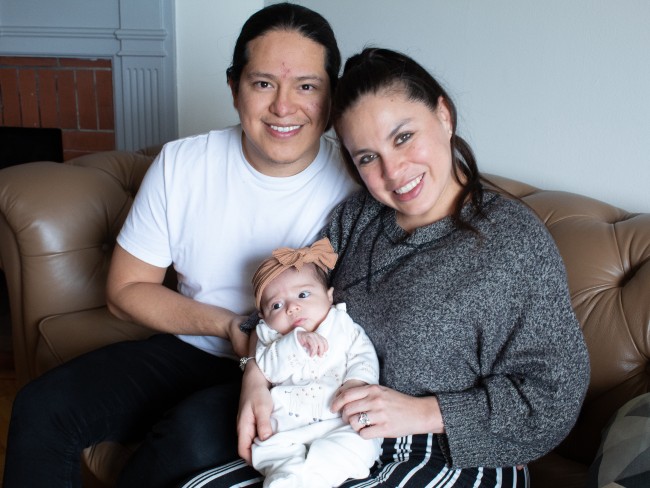
March 1, 2023
‘I am so grateful for life’
After a traumatic boating accident, Gabriela Curiel was airlifted to the …

February 24, 2023
Nurturing expectant moms who have substance use disorders
Project Nurture in Portland, Oregon, provides treatment and a path forward …

February 23, 2023
Eating disorders on the rise among teens
Expert shares 5 valuable tips for parents and guardians to help children …

February 7, 2023
Employee honored for her dedication to our communities
Valerie Dionne wins our 2023 George Halvorson Community Health Leadership …

February 2, 2023
Addressing social isolation in the Northwest
Kaiser Permanente invests $3.3 million to build healthy social connections …

February 1, 2023
Her heart was telling her something wasn’t right
When a Kaiser Permanente member discovered she had an irregular heartbeat …

January 25, 2023
Awake brain surgery changed patient’s life
A Southern California member with Parkinson’s disease underwent deep brain …

January 19, 2023
Understanding stress and how to manage it
A Kaiser Permanente psychiatrist shares advice for coping when stress won't …

January 13, 2023
Making dreams come true
Member achieves bucket list goal of helping to build a Rose Parade float, …

December 23, 2022
Making New Year’s resolutions that stick
Why paint yourself into a corner with a resolution you’re half-hearted …

December 21, 2022
From cancer patient to cancer colleague
A Kaiser Permanente member’s cancer journey inspires her to join the team …

December 14, 2022
Help for people struggling with drug or alcohol use
Find addiction and recovery information, assessments, and ways to get support …

December 8, 2022
How to manage holiday stress: Tips for the whole family
Experience the best of the season by following these tips from an adult, …

December 6, 2022
Building stronger, healthier communities at community event
Volunteers offered preventive care, first aid, cooling stations, and complimen …

November 30, 2022
RSV: Parents’ top questions answered
An increase in cases of this common childhood illness has some parents …

November 30, 2022
Alcohol and the holidays: A healthier relationship
A behavioral health consultant in Portland, Oregon, shares how mindfulness …

November 14, 2022
It’s time to rethink health care quality measurement
To meaningfully improve health equity, we must shift our focus to outcomes …

November 10, 2022
Stage 4 lung cancer: A story of hope
A young father is enjoying “bonus time” with his kids thanks to new targeted …

October 25, 2022
Feel good by eating right
What you eat can impact your mental health.

October 11, 2022
Cycling into retirement after knee repair
Expert, compassionate care after orthopedic surgery helps speed up the …

October 5, 2022
Kicking unhealthy pandemic habits
Explore fresh ways to get motivated and incorporate wellness into your …

October 3, 2022
Notice the red flags waving around our youth
Recognizing the warning signs associated with suicide can help save lives. …

October 3, 2022
Flu shots save lives and offer proven protection
Black people, Latinos, and people over 65 years of age are especially vulnerab …

September 27, 2022
A heart saved
When Rong Fang had a life-threatening heart attack, specialists at 2 Kaiser …
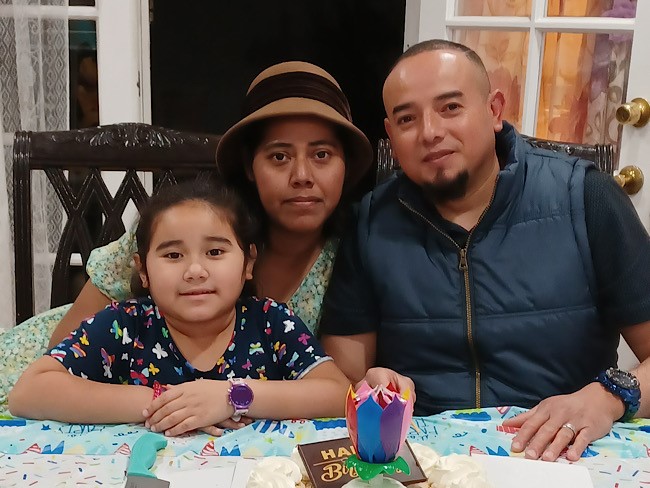
September 27, 2022
Medical excellence, compassionate nursing save mother’s life
A young woman sought help for what she thought was a work-related injury, …
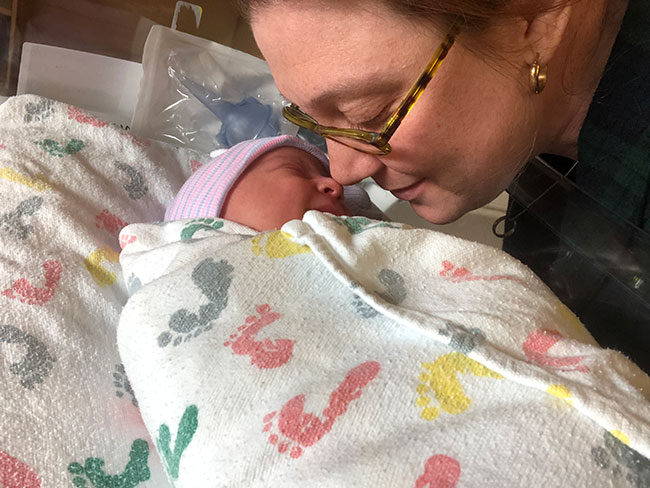
September 27, 2022
Maternity appointments from the comfort of home
New care option offers pregnant patients a mix of in-person and video visits.

September 9, 2022
Minority youth mental health may not be elementary
Support, talk about, and advocate for kids’ mental health. Otherwise, greater …

September 7, 2022
How you can help prevent suicide
When someone you care about is struggling, it can be hard to know what …

August 29, 2022
For student athletes, mental wellness is a game changer
A sports medicine physician and mental health therapist discuss the mind-body …
